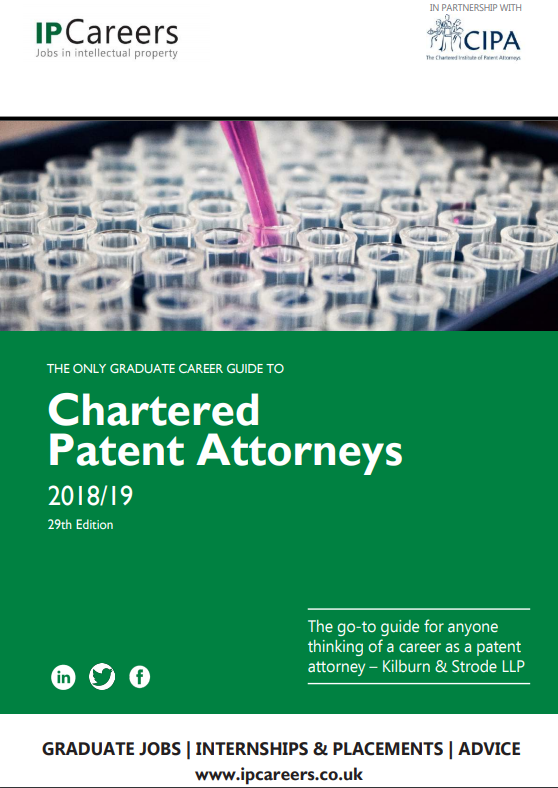Six things you didn’t know about a career in intellectual property
Despite intellectual property being an internationally recognised and respected profession, relatively little is known about what a career in IP actually entails.
Terms including trade marks, copyright, design rights, and patents are often uttered in relation to roles in this field – but what do people really understand about a career in the profession?
We are often asked by potential recruits how a patent attorney differs from a solicitor or a barrister, if our roles are varied, and what we actually do.
The truth is that while more is known and understood about the importance of intellectual property across all industries, there still remains widespread, and sometimes baffling, misconceptions, about careers in IP.
Worryingly, we believe that some of these false perceptions could deter people from entering the intellectual property profession, which could have a negative impact on recruitment across the sector, and see talented graduates and professionals miss out on pursuing rewarding roles.
In a bid to encourage more graduates into the intellectual property profession, the firm, which has offices across Cheltenham, Cardiff, Telford and London, has launched its annual search for the most promising engineering minds to join its innovative Training Academy.
The four-year programme trains new recruits in a diverse range of specialist modules, including intellectual property law, finance, and business skills, as they work towards qualifying as European and UK patent attorneys.
In a bid to attract the most talented individuals to the role and debunk the myths surrounding IP, Tina at Wynne- Jones IP is revealing six things that might surprise you about a career in intellectual property…
IP attorneys and solicitors are different
Many people are confused by this, admits Tina. Although both professions are legally based, they are in fact entirely separate within the legal field, IP attorneys specifically provide legal advice in relation to intellectual property and related matters, rather than litigating on a client’s behalf. They specialise in overseeing the entire IP portfolio including design, trade mark, patent, and copyright, and plan IP strategies to maximise IP protection. Alongside this they challenge any legal infringements to IP, and represent businesses across the UK and EU.
You don’t need a law degree
In contrast to solicitors, entering the intellectual property profession doesn’t mean you need a degree in law. However, a degree in the STEM field is crucial.
Additionally, a STEM-related degree would be advantageous when it comes to supporting science-based clients and would provide a greater understating of their IP portfolios and needs. At Wynne-Jones IP a STEM degree of any discipline is accepted when applying, with a grade of 2:1 or above required. In the case of this year’s Wynne- Jones IP intake, mechanical engineering, electrical engineering or a related degree is most suitable.
You don’t need a top-ranking university degree
This a myth that we have heard on numerous occasions. Many people falsely believe that you need to have attended Oxbridge or a similarly prestigious university in order to be considered for this career. That is incorrect. Wynne- Jones, along with most other IP firms, accept talented graduates from universities across the country – regardless of their educational ranking. All we are searching for is those that have a passion for understanding intellectual property and utilising their skills to effectively support businesses in protecting their IP.
Legal knowledge isn’t everything
Contrary to what people believe, it isn’t all about the legal knowledge. Communication and social interaction skills and just as crucial when it comes to client engagement. We are absolutely reliant on interacting effectively with our clients to gain the most useful and relevant information about their inventions to ensure they receive maximum protection.
It’s all about asking the right questions and really engaging with the client, to work out what aspects of the invention are most lucrative, or technically focussed, to ensure they are afforded the greatest support by their IP portfolio. If this is somehow lost in translation, their IP strategy could be totally misaligned to their aims.
Objectivity is key
Many of the inventions we work on are highly innovative and span a variety of industries, as such it can be hard to remain objective when something is of interest, however, remaining objective is actually crucial to ensuring the business receives the correct advice to adequately protect their IP.
It is really important to take a step back and carefully assess the business’s portfolio and which aspects are in need of IP protection. A measured and intelligent approach can often be clouded by personal interest, so putting your IP knowledge and understanding ahead of your passions is beneficial.
An IP career is anything but boring
This is a common misconception, and isn’t representative of the IP profession. A career in IP isn’t simply about working across STEM and technical industries, intellectual property clients span diverse industries from entertainment and sports, to fashion and design. Where there is an invention or brand, there is a need for IP protection.
Our job offers such incredible variety in terms of our client base, one day you could be working on protecting the latest life-changing medical devices, and the next you could be protecting world-leading vintage cars.
I think its label as boring comes from a misunderstanding of what IP actually involves, but those who undertake an IP career, generally find it rewarding and interesting and go on to enjoy enriching careers.
Wynne-Jones is excited to be embarking on its annual UK-wide search for the most promising and talented IP experts to join Wynne-Jones IP.
Those looking to apply must be studying a degree in mechanical engineering, electrical engineering or a related degree in order to be considered. The firm has also reminded applicants that their studies must be completed in the 2018/19 academic year and they require a 2:1 grade or above.
For more information, please refer to our Training Academy.




